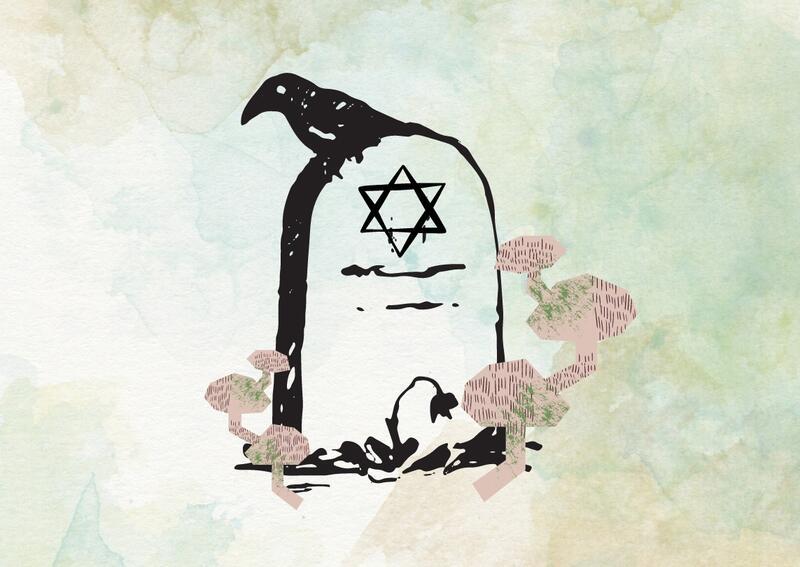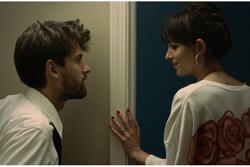Finding Humanity in the Zombies of "The Last of Us"
The Last of Us TV show depicts the breakdown of human society following the outbreak of a zombie disease. In this dystopian world, people are pitted against one another in a battle for survival. The show, released in June 2023, was adapted from the 2013 video game of the same name. The TV show, starring Bella Ramsey and Pedro Pascal, follows a young girl, Ellie, and her father figure, Joel, through a post-apocalyptic world. Cordyceps, the type of fungus that transforms ants into ant-zombies (yes, in our world), has evolved to infect humans. The beautiful yet haunting show explores what it means to be human.
The opening scene portrays a scientist, Dr. Newman, warning his audience about a possible zombie apocalypse. Dr. Newman explains how fungus can not only temporarily control minds (e.g., LSD), but also can permanently control minds (e.g., ant-zombies). He says that when the Earth becomes hotter than the human body, fungi may evolve to withstand the human body temperature and be able to control not just ants but also humans.
As I watched Dr. Newman’s warnings, I knew that climate change is occurring in the real world and wondered if, indeed, fungi could adapt to the human body and transform us into robotic versions of the humans we are today. The relatability of this scenario is what makes the show so eerie, captivating, and frustrating because, in the show, nothing is being done to stop what is coming. Sometimes our world feels that way too.
With the help of Dr. David Hughe (likely the inspiration behind Dr. Newman), who consulted on the production of the Last of Us video game, The Last of Us TV show portrays the zombies, infected by cordyceps, as similar to ants infected by the same fungi. For example, just like cordyceps slowly infect the Carpenter ants (or zombie ants) and control their brains from afar, the show’s human zombies do not immediately display signs of aggression. The infection starts slowly and then later becomes aggressive.
When the television zombies are infected, they abandon their families and join the other zombies. Over time, however, the zombies lose the ability to communicate with one another. The real-life zombie ants which inspired the show also wander off from the rest of their colony and climb up a stem to die. The zombies do not mindlessly walk around as they do in other media, but rather hunt for new humans to transform into zombies. This parallels how the Carpenter ants spray cordyceps on the colony of ants beneath them to infect them as well. The zombies have lost everything that once made them human: connections.
The Last of Us reminds me of how our humanity is often lost once we die. Too often, people are forgotten once they die. If you are not remembered, can you truly retain your humanity? As Rabbi Regina Sandler-Philips writes, “Popular culture fills the void with a relentless onslaught of imaginary fates worse than death. The creative powers of fear and fantasy far outstrip our ethical here-and-now efforts to visit the sick, honor the dead, console the bereaved, and communicate our own final wishes to those we love.” As I watched characters in The Last of Us succumb to the control of cordyceps, a fate worse than death, I thought of all of my dead loved ones. The Last of Us reminds me that if we do not honor and remember our dead, it’s as if they become zombies. Their bodies are still there but their souls are lost.
However, Jewish tradition ensures that our dead are honored in order to retain their humanity. For example, we mourn our loved ones for eleven months, their eyes are closed after death, and candles are lit around their body. One is not allowed to eat or drink around a dead body; it’s as if you would be taunting them since the dead can no longer perform these acts. Their bodies are buried as soon as possible to comfort their souls and allow them to reach the Olam HaBah as soon as possible.
Not only is honoring the dead a way to ensure our dead are remembered and respected, but it also serves as a way for us to preserve our own humanity. The Jewish process of mourning serves both as a way to remember and respect our dead, but also to comfort the people who lost their loved ones.
Let’s be honest, sometimes TV shows or movies about zombies can feel callow. However, the show’s beautifully drawn characters and a storyline that is grounded in the viewer’s reality—climate change, the effects of fungi, even the COVID pandemic—are what make The Last of Us worth watching. Sometimes in the show, humanity emerges from these dysfunctional, robotically behaved individuals, leaving viewers with hope for us all.
The show’s dramatic arc ends with a terrible existential choice that Joel faces, a choice that no father should have to make: to save his surrogate zombie daughter or the human race. Yet Joel’s choice to save Ellie, at the risk of losing the fight against the fungus, did not make me angry. In this critical moment, Joel reaffirms what it means to be human in a world where there are so few. When most characters in the show make decisions in line only with survival, this is a stark reminder of what it is to be and feel human. It shows that love is what makes life worth living. Love is important for the living and the dead–and even the undead.
This piece was written as part of JWA’s Rising Voices Fellowship.







